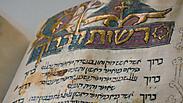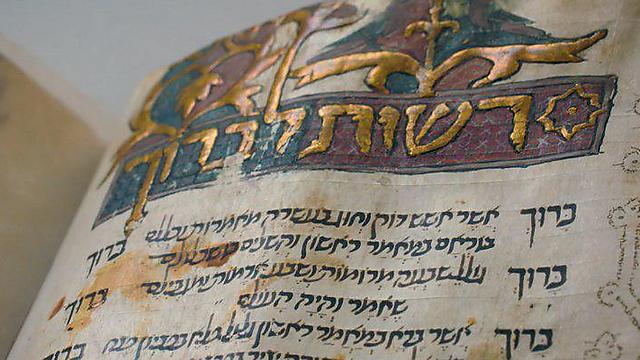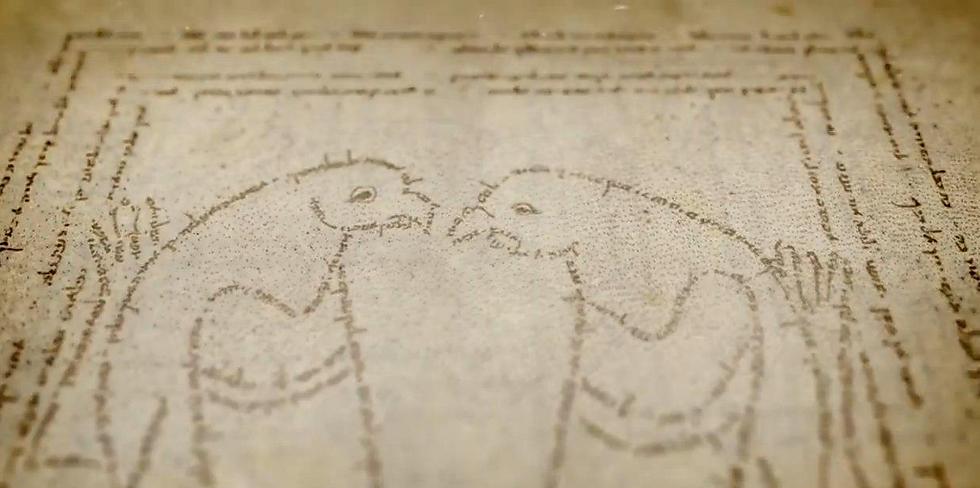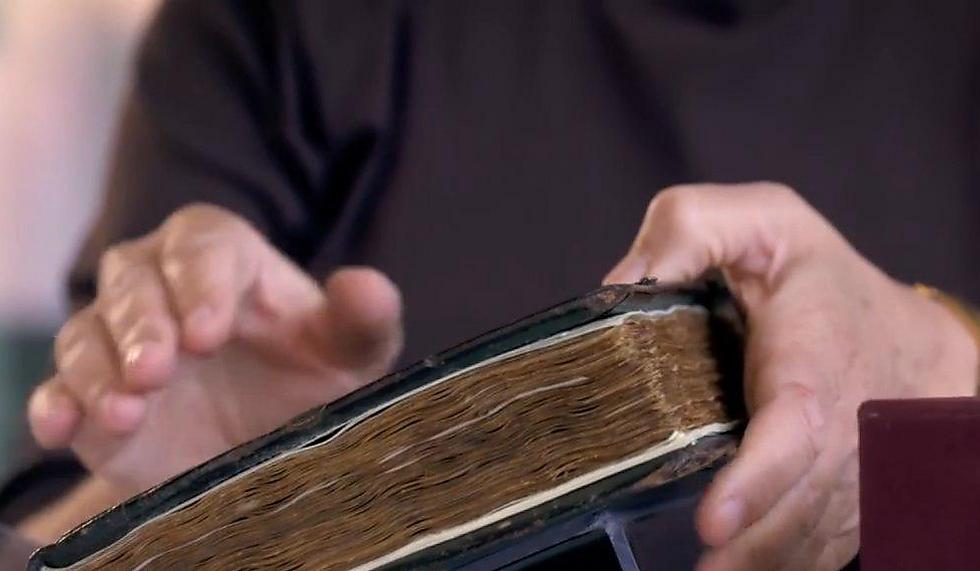
An ancient festival prayer book, originally penned in Catalonia, finally found its way to Israel after an incredible journey across two World Wars and most of the European continent.
The prayer book was written and illustrated by hand in the Spanish autonomous community in the mid-13th century, two centuries before Jews were expelled from the Christian kingdom.

Upon the expulsion, Jews took the book with them and it somehow found its way to Italy, the region that today is Israel and then Thessaloniki, which was part of the Ottoman Empire at the time. Finally, it was taken to Germany.
When World War II broke out, the manuscript went missing and reappeared again four decades later, when it was put up for sale in 1984.
Thanks to the involvement and generosity of Ludwig and Erica Jesselson, the book was purchased and then donated to the National Library of Israel.
A masterwork of Jewish creation
Beyond the manuscript's singular story, its contents shine an extraordinary light on the cultural wealth of Spain's Jewish communities before the expulsion. The festival book was intended for use by cantors during Rosh Hashanah and Yom Kippur.
The book is a masterwork of Jewish creation: liturgical poems written by some of the Jewish people's greatest poets, including Rabbi Judah Halevi and Abraham ibn Ezra, and is the only prayer book adorned with micrography, a distinctly Jewish artform of creating geometric designs using microscopic lettering.
"This artform appears almost exclusively in bibles, and therefore seeing it in a prayer book is unique," explained Dr. Dalia-Ruth Halperin, a micrography researcher.
"There's nothing else like it," she stated.
Poems written in the 'Golden Age'
The manuscript was written in parchment and includes 154 pages. It's adorned with micrographic illustrations and golden letterboxes set against scarlet and blue tiles.
"This book has at least three things completely unique to it," said Dr. Aviad Stollman, head of the National Library's Collections Division.
"The poems written during the Golden Age by the very best writers, its external beauty with unique micrography and, beyond all of those, the story of the Jewish people in the last few centuries," he elaborated.
"When I think of the author in Catalonia writing and illustrating the manuscript, what would he have thought if he were told about everything the book was going to go through? What would he have thought if he were told that in just a few centuries' time, Jews would no longer be in Spain but reside in Jerusalem, and that his manuscript would be taken on a tour of the entire world?" Stollman wondered.


















